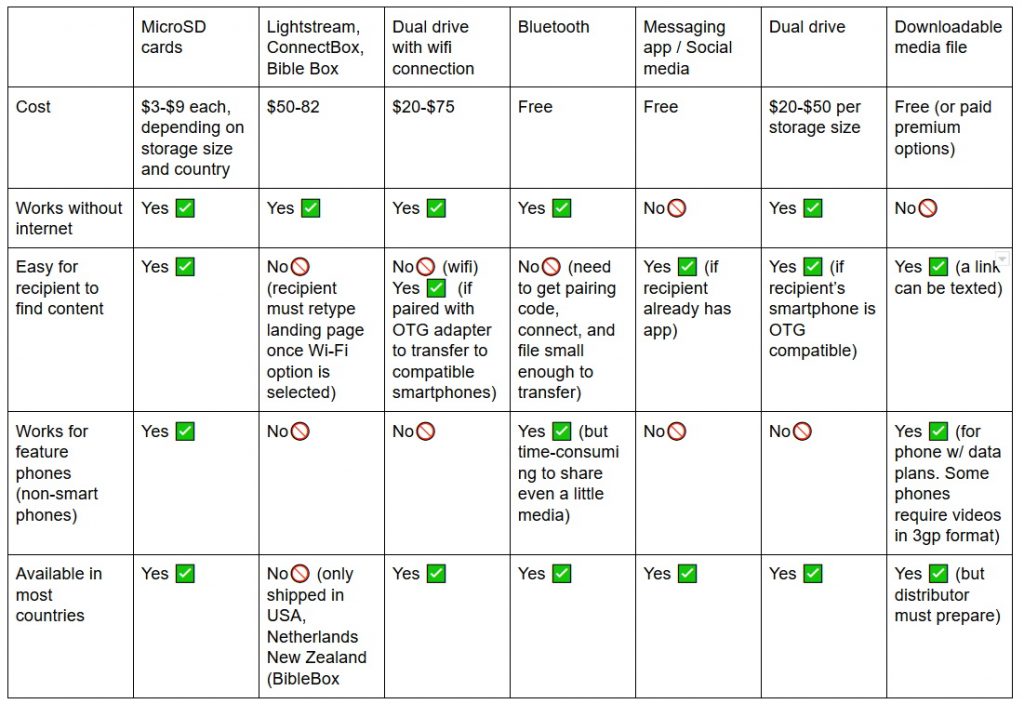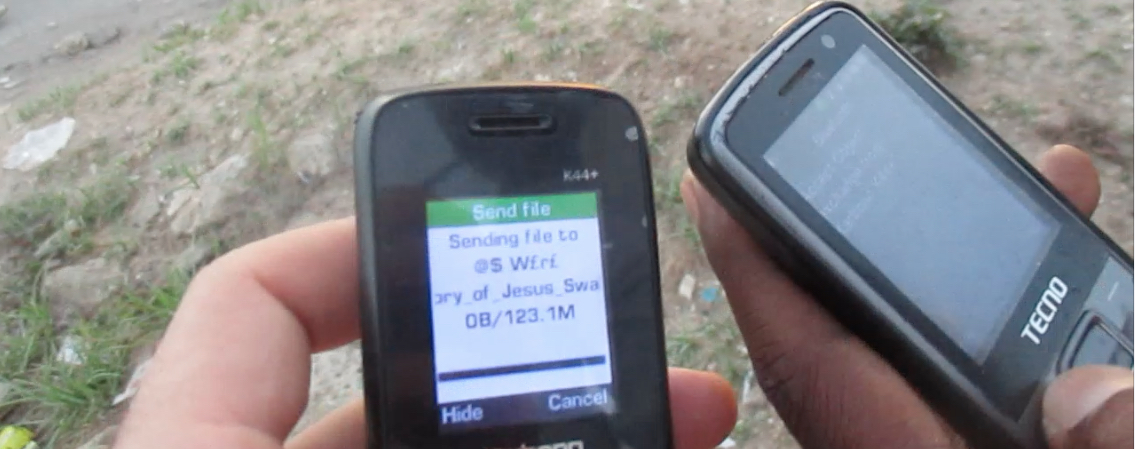Memory cards offer the greatest flexibility for the best cost for reaching most otherwise disconnected people.
MicroSD cards have many advantages:
- MicroSD cards are inexpensive compared to the value of what they can do. They cost $3-$9 (* change to local currency), possibly the same price of a low-cost Bible.
- MicroSD cards can hold the digital equivalent of a library of books and Bibles and racks of CD’s and DVD’s. Over time, microSD cards of larger capacity get cheaper.
- MicroSD cards are compact. They are all the same small size on the outside. This makes them very convenient for storing and sharing media, and easier to conceal in risky situations.
- MicroSD cards are durable as long as they are stored properly. This helps them avoid damage by moisture, extreme temperature changes or dust.
- MicroSD cards are available worldwide, sold in shops in even many remote villages.
- MicroSD cards always stay with their owner, even if you never see them again – People can use them anytime because they always keep their phones with them, and make sure to keep them charged.
- MicroSD cards reach people of any language by helping them get gospel films in their own language.
- MicroSD cards work in most in the world, including older feature phones.
- MicroSD cards are already valued and used. Many recipients already appreciate their value relative to the cost of blank microSD cards in local markets, and many people know how to use them.
- MicroSD cards are secure: Users can hide microSD cards separately in safer location. They are usually easy to get into and out of a phone quickly
Compare memory cards with other means of sharing gospel media.

You can see that memory cards often strike the best balance between cost, accessibility, effectiveness for the largest amount of users, especially in developing nations and sensitive situations. Request your free quote today.
